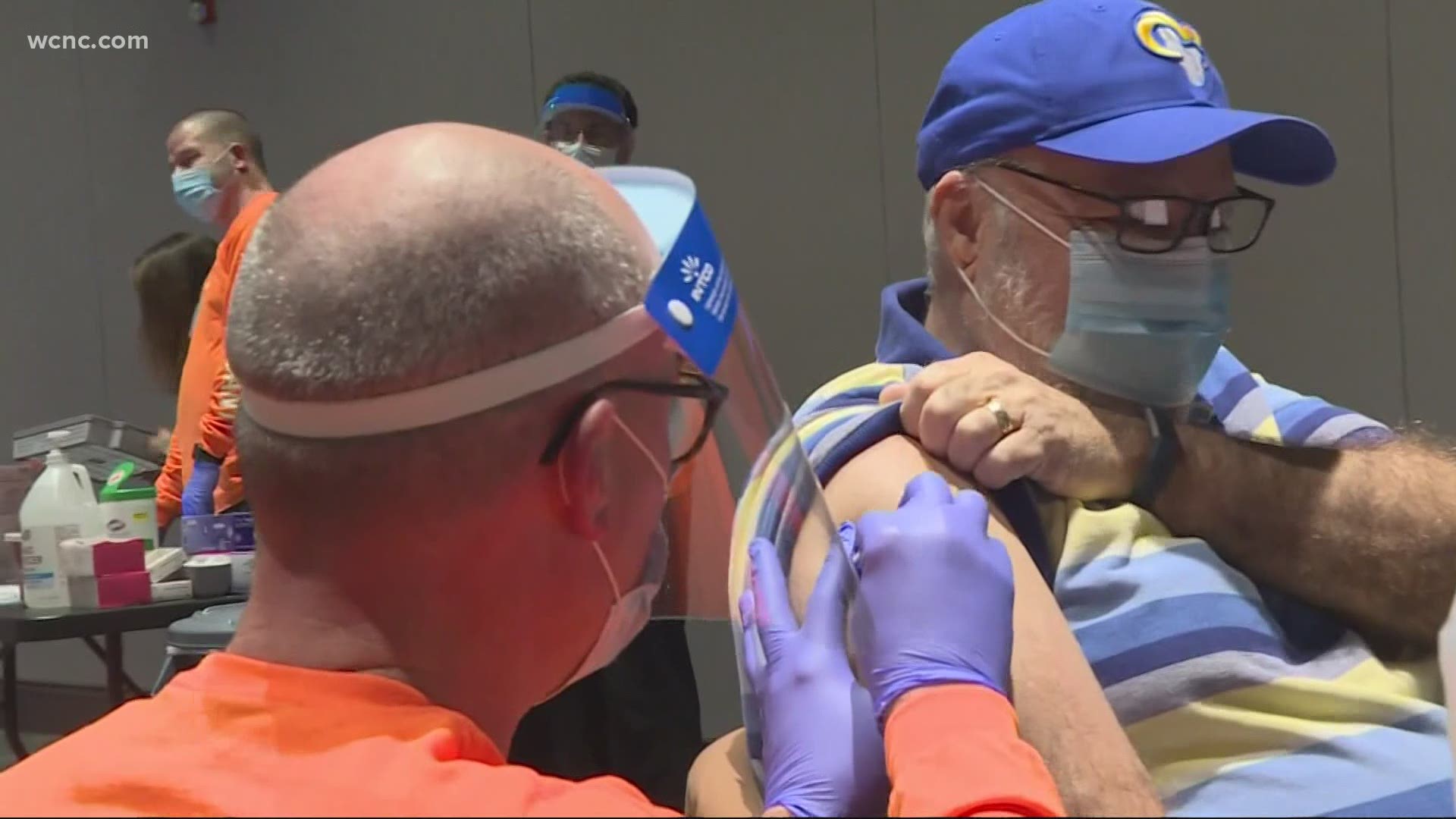CHARLOTTE, N.C. — The COVID-19 vaccines from Pfizer and Moderna require two shots, weeks apart. For those struggling to get their second dose within the recommended three- or four-week window, there is some flexibility with how late you can complete the vaccine series, and it is much more than the wiggle room with how soon you can get that second shot.
According to the Centers for Disease Control and Prevention, Pfizer doses should be spaced three weeks apart, and Moderna doses should be spaced four weeks apart. The agency reports a person can get the second shot up to four days earlier than that timeframe.
However, the maximum amount of time between doses is a lot wider. The CDC reports, while it is preferable to get the second shot as close to the recommended window as possible, a person has up to six weeks after their first shot.
RELATED: Novant Health announces mass COVID-19 vaccine clinic at Spectrum Center
To understand why health officials set the window that way, first, it is important to know what the two shots do.
"The idea is the first dose of vaccine primes your immune system. The second dose gives you a strong response for more protection," said Dr. David Priest, an infectious disease specialist with Novant Health.
There is also a reason to space the two doses out properly, and it has to do with letting the immune system rest and prepare for that second stronger response.
"That's what we want, a little bit of a calming down before you see the vaccine again," said Dr. David Montefiori, a professor of surgery with the Duke Human Vaccine Institute. "If you get these two vaccines too close together, then, the total length of time that the spike protein is in your body, for it to respond to it, is shorter."
Montefiori also notes that the weeks-long windows both Pfizer and Moderna set between the two doses is unusually short for a two-shot vaccine series, but that was likely a result of the pandemic circumstances, rather than any hard-and-fast rule about needing to get the shots that close together to produce an immune response.
"Most vaccines, where there's more than one administration, it's usually several months in between. I believe the vaccine manufacturers contracted that period of time for the phase three trials so they could get an answer quickly because we needed the vaccine really soon," said Montefiori.
Priest agrees that there is likely even more flexibility with the timing than we know right now.
"The reality of logistics and human life is that it's sometimes harder to do things on exactly that time you think it ought to happen, and so, it's generally, windows of time," said Priest. "You want to get it around that window, but if you have to wait a little longer, maybe even up to eight weeks, due to extenuating circumstances, that's going to be OK."

